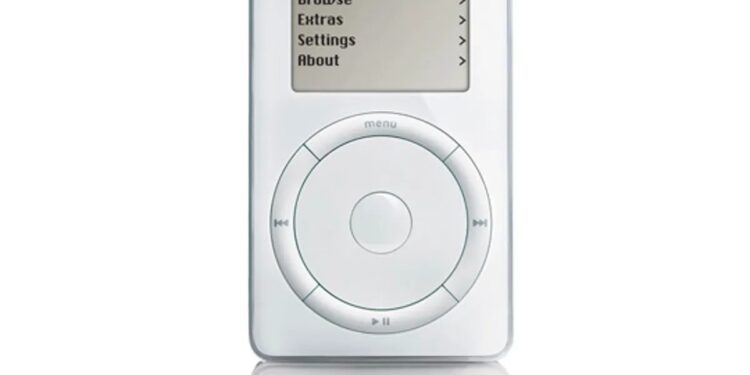When Apple unveiled the iPod on 23 October 2001, few realised that a small white music player would redefine the way people listened to music, reshape an entire industry, and help turn Apple into one of the world’s most influential companies.
A pocket-sized revolution
The iPod was designed as a portable digital music player capable of holding “1,000 songs in your pocket,” as Steve Jobs famously put it. At a time when most MP3 players were bulky, slow, and offered limited storage, the iPod stood out with its sleek, minimalist design, intuitive scroll wheel, and fast FireWire connection that could sync music in seconds.
Apple’s use of a 5GB hard drive—manufactured by Toshiba—allowed the iPod to store vast music libraries, while its integration with iTunes created a seamless ecosystem for music management and purchase. This combination of hardware, software, and digital content marked the first major step in Apple’s shift from being a computer manufacturer to a lifestyle technology brand.
Transforming the music industry
Before the iPod, the music business was dominated by physical media—CDs and vinyl. Illegal downloads through Napster and similar platforms had shaken the industry, but there was no legitimate, convenient digital alternative. The iPod, followed by the iTunes Store in 2003, changed that. Consumers could now legally buy individual songs for 99 cents, leading to a new business model that redefined how artists and labels distributed music.
The iPod also became a cultural symbol. Its distinctive white earbuds and iconic silhouette featured in Apple’s minimalist advertising campaigns, making it not just a device but a statement. From joggers to commuters, millions of people began carrying their entire music collections wherever they went, a concept that had been unthinkable just a few years earlier.
A stepping stone to Apple’s dominance
The iPod’s commercial success—more than 400 million units sold across multiple generations—paved the way for Apple’s later innovations. It introduced millions of users to the Apple ecosystem, setting the stage for the iPhone, iPad, and Apple Watch. Many of the design philosophies and interface principles that defined the iPod were carried over into these future devices.
By the late 2000s, as smartphones absorbed the iPod’s functions, sales began to decline. Yet its legacy endured. The iPod didn’t just revolutionise portable music; it transformed Apple into a global powerhouse and reshaped how the world consumed media.
Newshub Editorial in Europe – 23 October 2025




Recent Comments